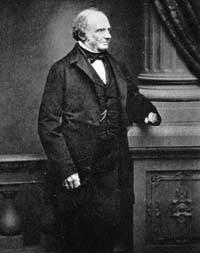Lord John Russell was born on August 18th, 1792 in London, England. He passed away on May 28, 1878, Pembroke Lodge, Richmond Park, Surrey. He was the PM of Great Britain (1846– 52, 1865– 66), a noble liberal and pioneer of the battle for a section of the Reform Bill of 1832.

Early Life of John Russell
Russell was the third child of John Russell, sixth Duke of Bedford. He visited the Westminster School in his schooling days and graduated from the University of Edinburgh.
Career of John Russell
In 1813 he turned into an individual from Parliament and after four years gave his first essential discourse—naturally, an assault on the administration’s suspension of the Habeas Corpus Act. In December 1819 Russell took up the reason for the parliamentary change, making it in the mid-1820s, and also of the Whig Party.
At the point when the Whigs came to control in 1830, he joined the ministerial committee that was to draft a changed bill, and on March 31, 1831, he introduced it to the House of Commons. For doing these in a short span of time he became famous.
During the 1830s and ’40s, Russell remained the central advertiser of liberal change in the Whig Party. Although his this job so superb as in the extended yet effective clash for the passing of the principal Reform Bill.
As paymaster general under Charles Gray, second Earl Gray, amid generally the main portion of the 1830s, Russell supported the reason for a religious opportunity for both English Dissenters and Irish Roman Catholics. To be sure, he sought after these points so ardently that, in looking to redirect a portion of the abundant wealth of the set up Church of Ireland (which was Protestant) to the Roman Catholics (who framed the greater part of the populace), his acts threatened Whigs as Lord Stanley (later Earl of Derby) to leave the party.
In the mid of the 1830s, as home secretary under Lord Melbourne, Russell, in addition to other things, he democratized the administration of substantial towns (except for London). He additionally decreased the number of criminal offenses obligated to the death penalty and started the arrangement of state examination and backing of government funded training.
Indeed, even out of office from 1841 to 1846, when he remained contrary to Sir Robert Peel, Russell left his imprint. In 1845, ahead of time of his gathering, he stood up to champion all out facilitated commerce, a vital advance in driving Peel to tail him. Subsequently, Peel split his party and the Whigs came into power, and Russell wound up head administrator.
This organization (1846– 52) exhibited that, despite the fact that Russell’s affinity for cutting edge thoughts was as solid as ever, his capacity to execute them was presently truly diminished. He had the capacity to set up the 10-hour day in production line work (1847) and established the Public Health Act of 1848. Russell believed that Irish had a lot of wealth and there would be no harm to the Irish people.
Yet, to a great extent on account of party disunity and feeble authority, he was unfit to end the common incapacities of the Jews, stretch out the establishment to the laborers in the urban communities, or assurance security of residency to the Irish ranchers.
In the year 1846-1847, there was Irish famine which led people to starvation. Russell’s government could not really be effective in providing help. There were people in a number of thousands who were starving to death and there was spreading of disease like cholera and typhoid. The 1841 census had recorded an Irish population of 8.2 million and by 1851 census the population number reduced to 6.5 million.
Soon after the Crimean war, Russell lost his leadership to Viscount Palmerston. From 1859 to 1865 he served as the foreign secretary under Palmerston and he supported the Italian Unification.
Death of John Russell
He retired before he was heading to serve for tenure as foreign secretary. He died on 28th May 1878.